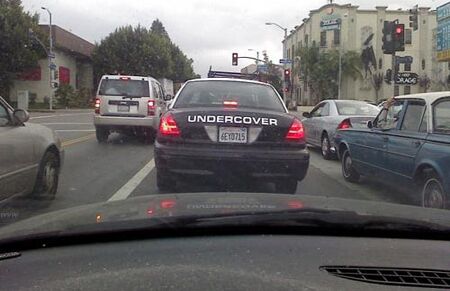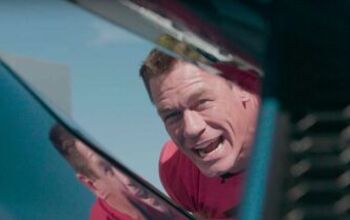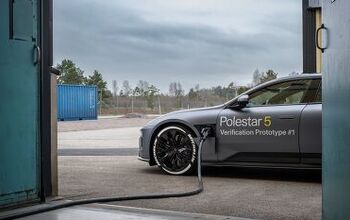Massachusetts Court: Police Powerless Outside Jurisdiction
The Appeals Court of Massachusetts last month confirmed the principle that a police officer has no more power than any other citizen outside of his legal jurisdiction. The decision came in the context of an August 4, 2006 incident where Joseph Limone was driving his Oldsmobile on Montvale Avenue in Woburn just past Interstate 93. Limone rear-ended the car in front of him, which just happened to be driven by a uniformed police officer.
Somerville Police Officer Robert Kelleher just finished his shift and had been returning home. Kelleher got out of the vehicle, and approached Limone who repeatedly apologized. Kelleher ordered Limone out of the car. After noticing that the man appeared drunk, Kelleher pulled the keys out of the ignition so Limone could not drive away. He then told Limone to go back and wait in his car until Woburn police arrived. Minutes later, Woburn Officer David Simonds took over and asked Limone for his license and registration, Limone handed him a pack of cigarettes. Upon arrest, Limone blew a .12 on the breathalyzer and was booked for what would turn out to be his seventh conviction for driving under the influence of alcohol (DUI). The court of appeal, however, found fault with his initial arrest.
“A police officer’s power to make a warrantless arrest is generally limited to the boundaries of the jurisdiction in which the officer is employed, and, absent fresh pursuit for an arrestable offense, a police officer is generally without authority to make an arrest outside his jurisdiction,” the appellate court ruled. “Outside his jurisdictional boundaries, a police officer stands as a private citizen, and if not in fresh and continued pursuit of a suspect, an arrest by him is valid only if a private citizen would be justified in making the arrest under the same circumstances.”
Because first-offense DUI is a misdemeanor — Kelleher only had reason to suspect Limone of a first offense — a private citizen would have no right to detain an individual for an apparent DUI.
“It was subsequent investigation that disclosed the defendant had been convicted on at least six prior occasions of operating while under the influence of liquor,” the court concluded. “Thus, the seizure of the defendant was unlawful.”
Because the initial arrest was unlawful, the evidence against Limone was thrown out as the ‘fruit of the poisonous tree.’ A copy of the decision is available at the source link below.
Massachusetts v. Limone (Court of Appeals, State of Massachusetts, 6/22/2010)
[Courtesy: Thenewspaper.com]
More by The Newspaper
Latest Car Reviews
Read moreLatest Product Reviews
Read moreRecent Comments
- Bd2 If I had time to watch other people driving, then I would go for LMP.
- Steve Biro There are 24 races on this year’s F1 schedule. And I guarantee you no more than two will be reasonably exciting, Meanwhile, F1’s reception for Andretti reveals the dark underbelly of the sport. I have followed F1 since the 1960s and, frankly, I am running out of interest. I’ll catch a race if it’s convenient but won’t bother DVRing them.
- YellowDuck Been watching since the 80s, seriously since the 90s once we had reliable TV coverage. I'm in Canada though. Hey, and don't forget that the Interlagos race is also in a convenient time zone, as is Mexico. So that's 5 races in the Americas. Absolutely love it, but it takes a bit more interest in the technical / strategic side of things to really appreciate it. It's not just going fast in circles until someone crashes into someone else, while drunk people watch. The US can be proud of what it has contributed - Austin is one of the best tracks on the calendar, Vegas turned out to be much better than anyone could have hoped, and even Miami - a real Indy car-style track - produced a good race this year.
- JMII I watch every F1 race, same with Indycar which is 100X better in terms of actual racing.
- Dale Quelle surprise.


































Comments
Join the conversation
This doesn't make sense to me. It's totally fine about jurisdiction ending at the town line in Mass. What's confusing to me is that after the 5th DUI conviction in Mass, the drivers license is revoked permanently. That is after the mandatory minimum prison term for each felony conviction (3rd = 150 days, 4th = 1 year, 5th = 2 years) the person is not allowed to drive again, no hardship license allowed. It would be hard to exchange information with the other party when they have no driver's license or insurance. None of this is mentioned in the above article and linked case brief. What's confusing to me is that the officer didn't relay the plate number in his initial phone call to the Woburn PD. There's some good information that could have been passed on. Registered gun owner? History of violent felonies? The usual info that a police officer would want at any traffic stop. That information (if linked with that vehicle) would have given the Somerville officer the information that it was a felony DUI stop. I'm sure every force in MA is now re-writing their procedures because of this one.
I'll reiterate my point which was missed. I guess I wasn't clear enough, but why would any DUI, particularly one involving an accident, not be a felony!? I don't care if it's his first, fifth, or 100th. DUI, particularly when there is an accident, should be a felony. Evidently, if the cop had reason to believe that a felony had been committed, he would have had the right to detain the drunken SOB.